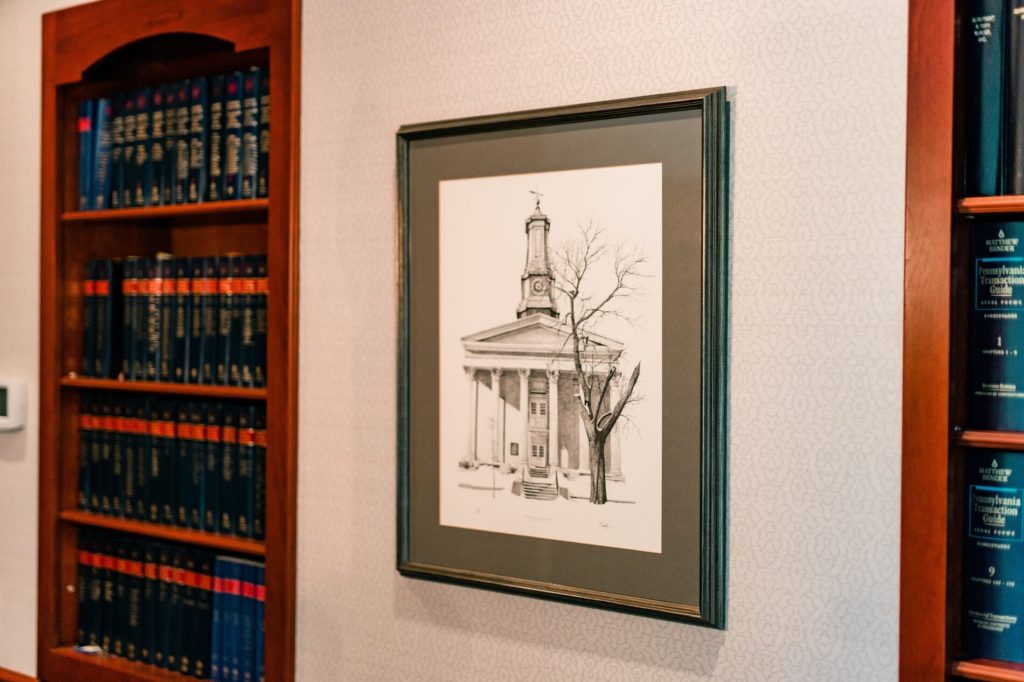Pennsylvania has gradually gravitated toward no-fault divorce proceedings. A difficult situation for those involved is made slightly easier due to neither side bearing the burden of proving fault. Now one simply must establish the passage of time in order to have a divorce proceeding progress. When a physical separation (either actual or constructive) occurred is the only relevant inquiry.
However, what happens when one of the litigants to a divorce dies before a Decree in Divorce can be properly entered? What if that now decedent spouse had already amended his/her Last Will and Testament in order to exclude the separated spouse from the estate?
Generally, a disinherited spouse may file a Petition seeking a spousal election against the new Will under the Pennsylvania Probate, Estate and Fiduciary Code. In order to defeat the claimed election the Executor under the Will must now prove that the surviving spouse deserted the marriage without cause or consent. See In Re: Zanfino’s Estate, 100 A.2d 515, 518 (Pa. 1971).
Unlike the no-fault divorce proceeding, the Executor must establish grounds that would have given rise to a “fault” divorce (cruel and barbarous treatment, adultery, etc) in order to trigger the forfeiture provisions of the Probate Code. Physical separation, by itself, is not sufficient. In a recent case, a surviving spouse, who was herself the victim of cruel and barbarous treatment [physical abuse], was found to have acted justifiably in separating herself from her former husband prior to his death. In Re: Estate of Leon R. Rollins, 61 Ches.Co.Rep. 49, 53. Conversely, where a spouse is exclude from the former marital home due to the provisions of a Protection from Abuse Order, his or her absence is deemed a de facto desertion In Re: Estate of Cochran, 738 A.2d 1029, 1032 (Pa.Super. 1999). Hearings to determine whether forfeiture is warranted are fact sensitive, and resemble divorce proceedings that might have occurred prior to the amendments to the Divorce Code in the 1980’s.
If you would like more information about this topic or your own unique situation, please contact one of our experienced family law and estate law attorneys at [email protected].
Moving, With Children (Custody Update)
Effective September 3, 2013, the Supreme Court of Pennsylvania adopted amendments to the Rules of Civil Procedure relating to child custody and relocation. The proposed rules beginning at Pa.R.C.P. 1915.17 were designed to define or redefine a “relocation” after the amendments to Title 23 (Domestic Relations) in October, 2010.
Prior to September 2, 2013, the generally accepted practice was that relocations were limited to occasions where the proposed relocation would lead to a substantial impairment of another individual’s custodial rights. Disagreements arose as to whether the requirements of Title 23 were limited to custodial parents or whether they applied to the non-custodial parent as well. In some instances advocates for custodial parents argued that the non-custodial parent’s intended move out of county should have triggered the notice requirements of Title 23. The theory behind such arguments was that additional travel time and potential disruption to the children’s activities or school, would constitute a “substantial impairment”.
Under the amendments adopted September 3, 2013, those arguments appear to have been codified by the Supreme Court of Pennsylvania. Any party now proposing to change the “residence of a child” must now comply with the notice provisions of Title 23. In the decade or so since the Gruber decision, attempts to create a uniform process regarding proposed relocations has had the (intended or unintended) consequence of further restricting a party’s ability to relocate.
If you would like more information about this topic or your own unique situation, please contact one of our experienced family law attorneys at https://salinglitvin.com. (610.692.2800) Douglas W. Olshin
